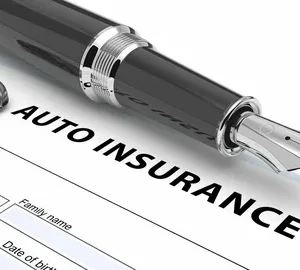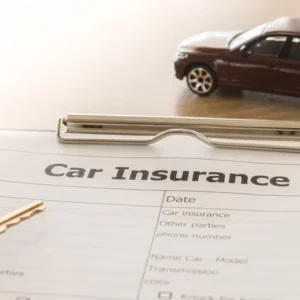Introduction: The Hidden Rules of the Claims Game
Let’s be honest: no one buys car insurance thinking about the day they’ll have to use it. But when that day comes, it can feel like stepping into a maze of fine print, phone trees, and frustrating delays. What most policyholders don’t realize is that insurance companies have entire departments dedicated to minimizing claim payouts. They’re not inherently evil—they’re businesses with shareholders to please. But their goals don’t always align with yours.
This blog post is your insider’s guide to beating them at their own game. We’ll walk through the entire car insurance claim process, highlight common mistakes that can ruin your chances, and show you how to negotiate like a seasoned pro. Throughout, we’ll link to authoritative resources and provide real-world insights to help you succeed.
Understanding the Car Insurance Claim Process
Most people assume filing a claim is as simple as picking up the phone and describing the accident. In reality, it’s a multi-step process that involves:
- Immediate documentation at the scene
- Filing reports with police and insurance
- Cooperating with insurance adjusters
- Assessing and negotiating repair costs
- Accepting or contesting a settlement
Each of these steps can make or break your outcome. According to Consumer Reports, your best defense is preparation: “Start gathering your own evidence immediately after the accident.”
Let’s dive deeper.
car insurance claim tips
Here’s what seasoned adjusters won’t tell you—but what you need to know to win:
- Photograph everything. Don’t just take pictures of your car. Document all vehicles involved, nearby street signs, weather conditions, skid marks, injuries, and license plates. Use a time-stamped app if possible.
- Always call the police. Even for fender benders. A police report provides an unbiased version of events that can support your claim.
- Don’t admit fault. Even saying “I’m sorry” can be twisted into an admission of guilt. Stick to facts only.
- Seek medical attention ASAP. Not only for your well-being but because delay can hurt your case. Insurers often argue that delayed treatment equals minor or unrelated injury.
- Track every expense. Save receipts for everything: medical bills, towing, car rentals, rideshares, missed workdays. These costs add up and support your claim.
- Communicate in writing. Keep a written log of every phone call, with names, dates, and a summary. Follow up calls with emails.
how to file a car insurance claim
Filing a successful claim requires knowing your policy inside and out. According to ThinkInsure, you should take the following steps:
Step-by-Step Claim Process:
- Report the Incident Immediately
- Call your insurer as soon as it is safe to do so.
- Some states have strict deadlines (within 24-72 hours).
- Share Accurate, Factual Details
- Never speculate or estimate. Stick to what you know.
- Provide your policy number, location, names of other drivers, and vehicle info.
- Gather All Documentation
- Police report
- Photos and video evidence
- Witness contact details
- Get Multiple Repair Estimates
- Don’t rely solely on the insurer’s recommended shop.
- Obtain 2-3 quotes and compare them to the insurer’s appraisal.
- Negotiate if Needed
- Insurers often start low. Be ready to push back.
- Track the Claim Status
- Follow up regularly. Don’t assume no news is good news.
- Finalize and Close the Claim
- Only sign off when you’re satisfied with the settlement.
common car insurance mistakes
Even honest, responsible drivers make mistakes that can tank a valid claim. According to the Insurance Information Institute, these are some of the most common errors:
| Mistake | Why It Matters | What To Do Instead |
|---|---|---|
| Not Calling the Police | No official report = your word vs. theirs | Always file a report, even for minor incidents |
| Admitting Fault at the Scene | Can be used to deny your claim | Focus on safety and gathering facts |
| Accepting the First Offer | Usually lower than what you’re owed | Research and request your own estimates |
| Failing to Document Injuries or Expenses | Weakens your claim for reimbursement | Keep a physical and digital record of everything |
| Letting Insurance Lapse | One missed payment = denied coverage | Set up automatic payments and calendar reminders |
negotiate insurance settlement
Once the insurer sends a settlement offer, you have the right to accept, counter, or appeal it. Here’s how to counter effectively:
- Compare Quotes. Use your repair estimates to show the actual cost of damages.
- Request Justification. Ask the adjuster to explain how they calculated your offer.
- Submit a Counteroffer. Do this in writing, with supporting documentation.
- Be Professional. Insults or threats will stall progress.
- Involve a Third Party. You can hire a public adjuster (more on this later).
NerdWallet suggests that you always escalate in writing if negotiations stall. Document everything.
The Role of Evidence in Winning Your Claim
Want to tilt the scales in your favor? The secret weapon is solid evidence:
- Photos/Videos – Capture every angle. Use timestamps.
- Medical Records – Include ER visits, ongoing treatments, prescriptions.
- Repair Estimates – Use reputable shops, not just the insurer’s pick.
- Witness Testimonies – Independent validation strengthens your case.
According to MarketWatch, you can also claim for diminished value of your vehicle post-repair. This often-overlooked step can net you hundreds or even thousands of extra dollars.
when to hire a public adjuster
If your claim is complex or you feel you’re being treated unfairly, consider hiring a public adjuster or attorney.
- Public Adjusters act on your behalf (not the insurer’s). They typically charge a fee of 5–10% of the settlement.
- Attorneys are essential if your claim is denied or you’re facing bad-faith tactics. Many work on a contingency basis.
- State Insurance Departments also accept consumer complaints and can mediate disputes. Find your local office.
Additional Tips to Stay Protected
- Read Your Policy Annually. Understand your deductibles, limits, and what is excluded.
- Keep Up With Maintenance. Skipping oil changes or tire rotations can be used against you in court. Investopedia explains how lack of maintenance affects claims.
- Consider Gap Insurance. Especially if you’re financing a car. It covers the “gap” between what you owe and what your car is worth.
Conclusion: Knowledge Is Power
Insurance companies don’t exist to pay claims—they exist to make money. But that doesn’t mean you have to settle for less than what you deserve. With the right strategy, detailed documentation, and confidence in your rights, you can file and win your car insurance claim like a pro.
Remember:
- Start documenting immediately
- Know the value of your claim
- Push back professionally
- Seek help when needed
You paid for your policy. Now it’s time to get what you paid for.
Drive smart. Claim smarter.






